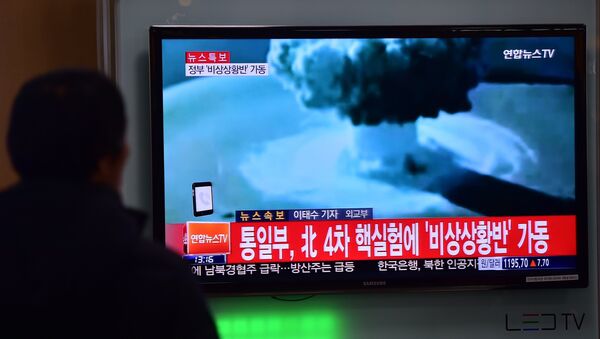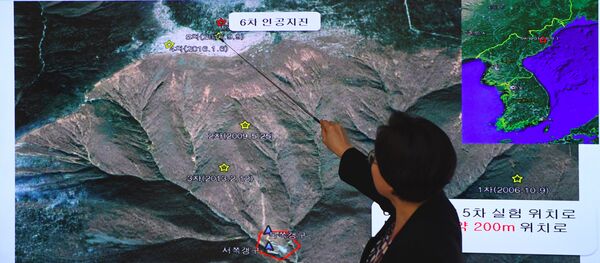Panov highlighted the need for an international conference to draw up an all-inclusive roadmap on confidence-building measures, security and reduced military presence as the only way to end the crisis.
"The stalemate continues. I don’t know how long this situation will last. Russia and China have been calling for talks, but neither Pyongyang nor Washington is ready to talk. Therefore, something more needs to be done than just freeze the conflict,” Panov added.
Commenting on media reports about a new series of nuclear tests by Pyongyang and its open disdaind for the UN’s negative response to its missile program, Panov said that it was nothing new, “North Korea is implementing its nuclear and missile program.”
North Korea claimed Sunday it had successfully conducted a hydrogen bomb test that could be loaded onto its intercontinental ballistic missiles. Pyongyang said that no radiation leakage had occurred during Sunday’s test.
Pyongyang's presumed sixth nuclear test since 2006 was held near the town of Kilju. This came just days after the country launched a ballistic missile over the territory of Japan.
The shockwaves from the underground blast, by far North Korea’s most powerful ever, caused tremors that were felt in South Korea and China.
The Japanese and South Korean governments held emergency meetings with Japanese Prime Minister Shinzo Abe ordering the collection and analysis of all available information pertaining to Sunday’s test, together with the US, South Korea, China and Russia.
Tokyo has condemned North Korea in the strongest terms through its embassy in Beijing and will coordinate its actions with the United States and South Korea to request the United Nations to convene an emergency meeting of the Security Council to discuss the situation.



